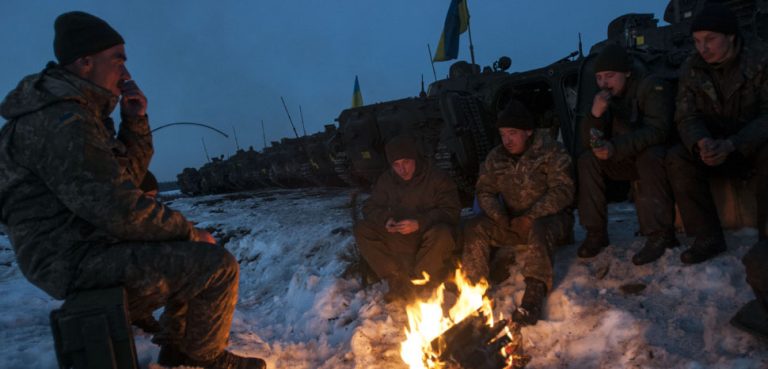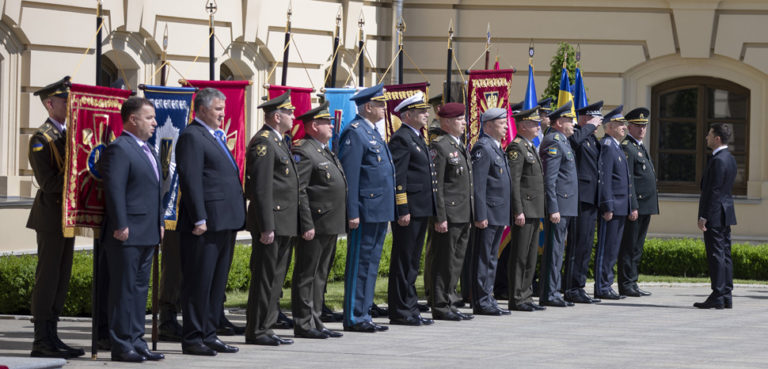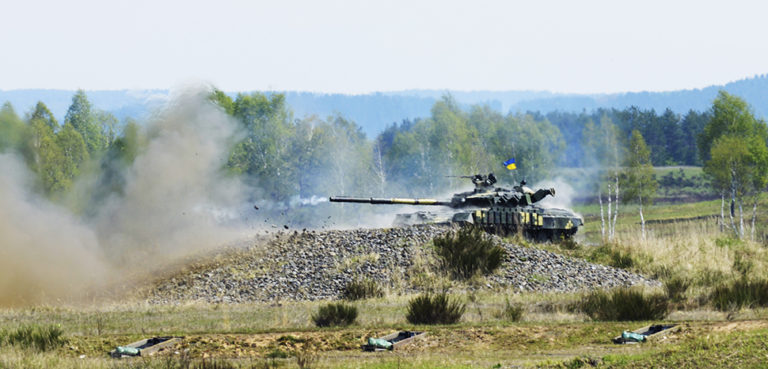The month before the US election has been one of dizzying headlines for Ukraine. Ukrainian President Volodymyr Zelenskyy toured the United States, meeting with Vice President Kamala Harris, former President Trump, and visiting Pennsylvania, while new NATO Secretary-General Mark Rutte paid a visit to Kyiv where he stated that Ukraine’s path to NATO membership is ‘irreversible.’ Solemn headlines persist, with the Financial Times reporting on low morale and the inevitable loss of land Ukraine will have to endure to engage in peace talks, and French President Macron speaking of the Europe Ukraine wishes to formally join as a dying entity. There is a comforting consistency present, however, both in Macron’s preoccupation with Europe’s mortality, and the remedy to that mortal route, which remains the continued investment in and Euro-Atlantic integration of Ukraine.
As many military historians have noted, the Ukraine war is likely to end at the negotiating table, and Kyiv may have to make painful concessions in the short-term realize its long-term aim of joining NATO. Ukraine may already be territorially divided as war correspondent Owen Matthews notes in The Spectator, but the fatalism about its demarcation lines is entirely the creation of Western leaders. The fear of escalation with Russia still weighs heavily on the minds of Chancellor Scholz of Germany, President Biden, and others, despite many of Moscow’s supposed red lines being crossed without any retaliation. Ukraine’s Western allies are providing enough military kit to ensure that Ukraine doesn’t lose the war but not enough to ensure its victory. Victory remains far off, fragile, and even scary to some, with the prospect of a defeated Russia even more frightening than a victorious one.
Whereas Harris is likely to endorse a Ukrainian-led peace proposal, the Vance and Trump peace plan for Ukraine amounts to a near capitulation to Putin, denying Ukraine the right to its sovereign territory and NATO membership aspirations. The more strategic minded who support Trump like former Pentagon official Elbridge Colby view this approach as a return to pragmatic realism in international relations, not abandoning Ukraine, but being clear-eyed as to the course of the present conflict and what Ukraine is able to accomplish. However, there is a thin line between realism and appeasement in global politics, viewing the world as it is and your allies not as they can be, but as they currently are and historically have been constrained by greater powers. Ukraine is in exactly this predicament today, proving to the world that its fight is valiant and worth contributing to, while remaining hobbled by Cold War and post-Soviet era tropes of great power relations that continue to define too many strategic issues in the 21st century.
As the UN General Assembly recently revealed, it is clear that members of the Global South, under the sway of Russia and China and with considerable influence from Brazil and South Africa, hold incredible clout when it comes to the potential peace process in Ukraine. Since Moscow’s full-scale invasion, Berlin’s influence on any peace settlement, let alone its strength within Europe, has arguably weakened while Brasilia’s has only increased. The West has held together much longer than most anticipated, but its weakness is that it does not have a strong core but a selectively strong periphery stretching from Washington to London and Warsaw, occasionally including Paris but almost never Berlin. The China-Brazil proposal for peace negotiations is likely to continue to gain traction, including from some NATO member states, and may be worthy of Zelenskyy’s consideration sooner rather than later. Rutte, just like his predecessor Stoltenberg, will continue to advocate for a Ukrainian-led rather than a Chinese-led peace initiative, but there are many variables at play, not least of which is the outcome of the US presidential election and the state of Ukraine after another long winter of punishing strikes on its critical infrastructure. It may have taken Moscow nine months and the loss of 10,000 men to capture Avdiivka, a city with a pre-invasion population of 31,000, but Russia, despite its many failures, still has the upper hand.
There are hard choices ahead for Ukraine and its Western allies in balancing what is realistic vs. what is idealistic for Ukraine, principally on questions of NATO membership, military aid, and the restoration of its sovereign territory. Washington can either release all restrictions on the use of its weaponry to strike military targets deep inside Russia, or it can continue on pursue an ad-hoc, battle-by-battle approach that unnecessarily delays Ukraine’s victory and plays into Putin’s hands by signaling fear of his red lines. The will of the Ukrainian people and the basic fact of geography remains, however. Ukraine’s future, as it always has been, is in Europe, not the Eurasian heartland contested by empires over a century ago but as a 21st century extension of Milan Kundera’s famous ‘kidnapped West.’ The border of the West keeps moving eastwards, and Ukraine will break free from Kundera’s paradigm by being both culturally and politically in the West, rather than having the two isolated by an invisible boundary that is ripe for exploitation by revanchist powers.
There remains a strong urge for Ukraine’s victory to be decisive and swift, but it is more likely to be prolonged and piecemeal. This perspective can help bring Ukraine to the negotiating table from a position of strength, keeping the long-term goal of the full restoration of its territories but allowing for compromise in the short-term when needed. The one immovable quality that Ukraine cannot compromise on, or change is its geography and the burdens of the past. One dictates a European future while the other allows for a more complex geostrategic outlook to ensure that future’s arrival. Thus, the ultimate route to Brussels may wind through Brasilia and Beijing, not to the detriment of Europe and a European identity for Ukraine, but to strengthen Ukraine’s alliances and weaken its vulnerabilities.
The outcome of the US election will also signal to Kyiv and the wider world whether Washington can be a trustworthy partner capable of upholding its global commitments. Dynamic relationships between the United States and democracies like India and Brazil, in addition to those with other NATO member states, can help drive better outcomes for Ukraine. For Ukraine’s cause is global and anti-imperial, less of a battle between autocracy and democracy and more of a fundamental right for freedom and autonomy against oppressive and neo-imperial subjugation. This lens, with the right political stewards at the helm, can help guide the West and the Global South to a Ukrainian victory that is mutually beneficial and non-threatening, even aspirational. Ukraine’s deftness in threading this needle is what will ensure its victory, proving to much larger and established powers in the West that the geostrategic outlook worth emulating lies in Kyiv.
The views expressed in this article belong to the author(s) alone and do not necessarily reflect those of Geopoliticalmonitor.com.




